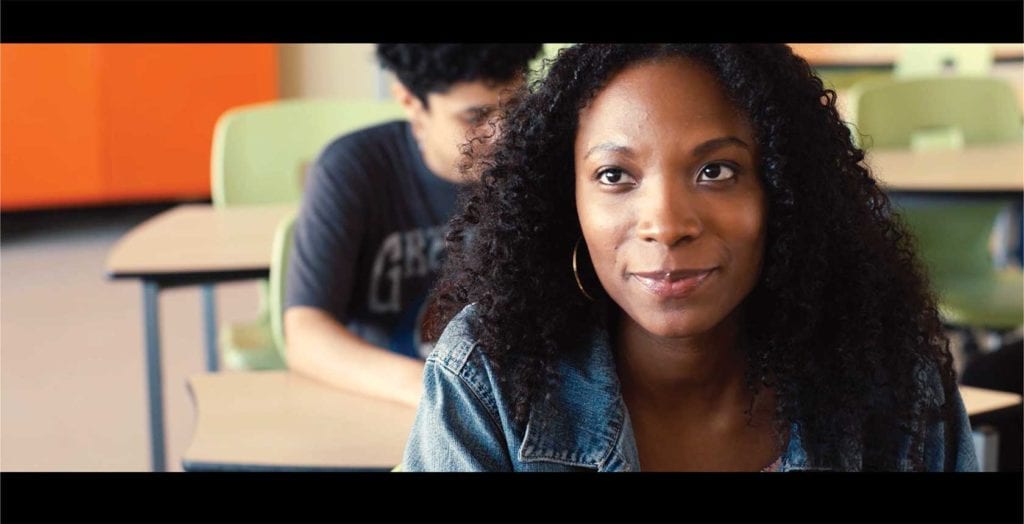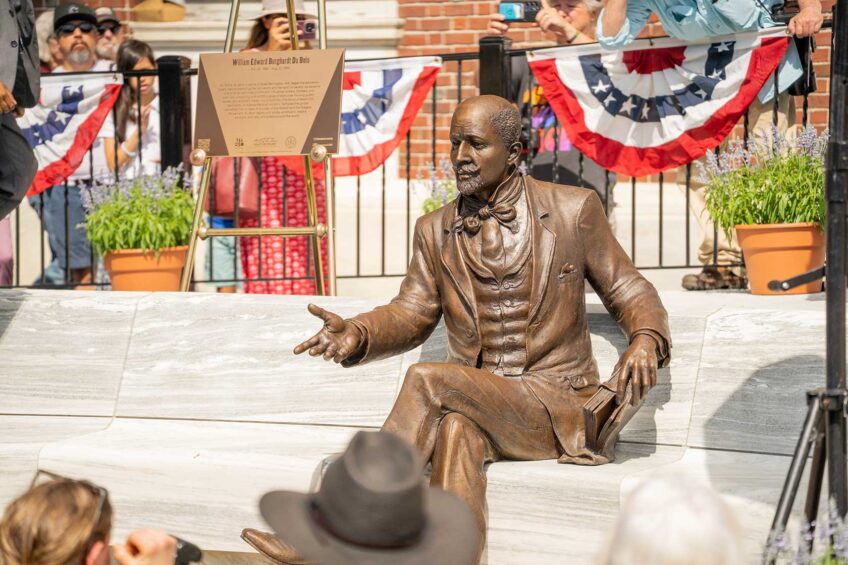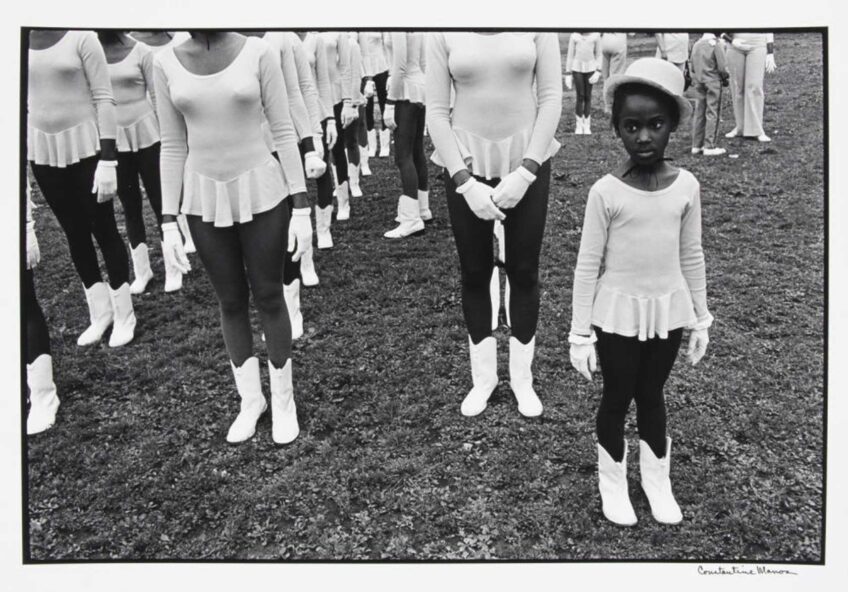
The Roxbury International Film Festival (RoxFilm) has evolved in size and scope over the past two decades, but its core mission of amplifying underrepresented voices remains true.
Over the course of 10 days, June 17–26, the film festival will offer audiences a hybrid experience, with both in-person and online screenings. The more than 65 films include feature-length narrative films, documentaries, shorts and animated films representing the United States, Zimbabwe, Canada, New Zealand, Rwanda, the U.K., French Guiana and Brazil.
Director Yoruba Richen’s documentary, “How It Feels to Be Free,” opens the festival on Thursday, June 17 at 5:30 p.m. at the Museum of Fine Arts, Boston. The film takes a look at the intersection of African American women artists, politics and entertainment.
Based on the book, “How It Feels to Be Free: Black Women Entertainers and the Civil Rights Movement,” by Ruth Feldstein, the film tells the story of how six trailblazing women — Lena Horne, Abbey Lincoln, Diahann Carroll, Nina Simone, Cicely Tyson and Pam Grier — changed American culture through their films, fashion, music and politics.
Desiring to speak to their own personal truths, the performers faced huge challenges and setbacks in their careers, from sexism to being considered Communists to being denied opportunities because of their race and skin color. Despite the hardships, they continued to advocate and fight for civil rights, equality, and justice.
“They were all risk-takers, in that they didn’t necessarily take the safe path,” Richen says, speaking with the Banner by phone.

Cicely Tyson, from the documentary “How It Feels to Be Free.” Photo: courtesy of The Roxbury International Film Festival
Richen, who directed the Peabody-nominated documentary, “The Sit-In: Harry Belafonte Hosts the Tonight Show,” knew that she had to tell the story of these pioneering women. When she read a review of Feldstein’s book a few years ago, she immediately contacted the author to option it. With “How It Feels to Be Free,” the director explains, she wanted to show how these women were “at the forefront of cultural innovation, and also being political in their representation and in their actual politics as they were doing it.”
A urban coming-of-age tale
Following Richen’s film on June 17 is “Memoirs of a Black Girl,” the coming-of-age drama directed by Thato Mwosa. It tells the story of Aisha Johnson, a student at the fictional Dudley High School, who’s vying for a coveted college scholarship. When she makes a quick decision at school at the behest of a teacher, Aisha unknowingly turns her life upside down and puts her future in jeopardy.
“Memoirs of a Black Girl” is Mwosa’s first feature film, but it’s not her first time directing. She’s been helming a camera for more than 15 years, beginning with her first movie, “Don’t Tell Me You Love Me,” which premiered at the Roxbury Film Festival in 2005 and earned her the Emerging Filmmaker Award.
Mwosa’s interest in moviemaking began when she took a documentary filmmaking course at Emerson College. “I knew right away that it is what I wanted to do for my career,” she writes in an email. “I was attracted to the power of film; how I could engage, educate and enlighten audiences through visual storytelling.”
A love letter to her students, “Memoirs” was born out of Mwosa’s frustration at the lack of coming-of-age stories set in urban schools to show her students. With this film, she says, she wants to honor their stories and celebrate who they are. “A lot of times urban schools and urban students are depicted negatively in movies. I intended to present a counternarrative. I wanted to focus on smart Black and brown kids who excel despite the pressures and challenges of high school,” she explains. “The protagonist, Aisha, is a composite of the many brilliant girls I have encountered in my teaching career. I wanted to say, ‘I see you. I hear you. I applaud you and you are doing all the right things. Keep going.’”
Blacks in the Renaissance
In the entertaining and educational one-hour documentary, “A Fresh Guide to Florence with Fab 5 Freddy,” screening Friday, June 18 at 7:30 p.m., the hip-hop legend and visual artist travels to Florence, Italy in search of uncovering the hidden Black figures of 15th- and 16th-century Italian Renaissance art.

Fab 5 Freddy in “A Fresh Guide to Florence with Fab 5 Freddy.” Film still: courtesy of The Roxbury International Film Festival.
Fab 5 Freddy, né Fred Brathwaite, was at the forefront of rap music and hip-hop culture and was one of the people who began the street art movement in New York City in the late 1970s and early 80s. Recently, he was featured in director and producer David Shulman’s BAFTA Award-winning documentary, “Basquiat: Rage to Riches,” about artist Jean-Michel Basquiat and his rise in the art world.
The host and producer of “Yo! MTV Raps” was a good friend of Basquiat’s and he recreated a sequence for the documentary (with Shulman in tow) about how he and Basquiat would walk around The Metropolitan Museum of Art together every Wednesday and look at art and talk about different kinds of paintings. He did it with such flair and in such “a unique Fab way,” says Shulman, that the director approached him with the idea of taking him to Italy to look at the Renaissance through “fresh eyes.”
Fab 5 Freddy recalls telling Shulman, “That would be good, but what I’d like to do more is look at the fact that there are Black people featured in Renaissance paintings. There’s very little scholarship on that fact, including one of the Medicis, who invented modern patronage, who’s also Black, and not talked about.” And the rest is history.
Broadcast by the BBC in 2019, the project exceeded Shulman’s expectations in a couple of ways. “Fab really got into it,” he says. “There was nothing that he wouldn’t get into in terms of the nuances of talking about the difference between the early Renaissance and the late Renaissance, Michelangelo versus Giotto, what were the differences and what was unique … [and] doing it in a way that was totally accessible.”
In addition to having fun on the production, Shulman says, “We were both in complete agreement and passionate about really wanting to look at the representations that would defy expectations, defy stereotypes, and try to discover new things that are out there but are usually overlooked — and I think we did that.”
The Roxbury International Film Festival runs June 17–26 at the Museum of Fine Arts, Boston, with some events hosted virtually. A complete list of events and screenings and tickets are available at www.roxfilmfest.com.







